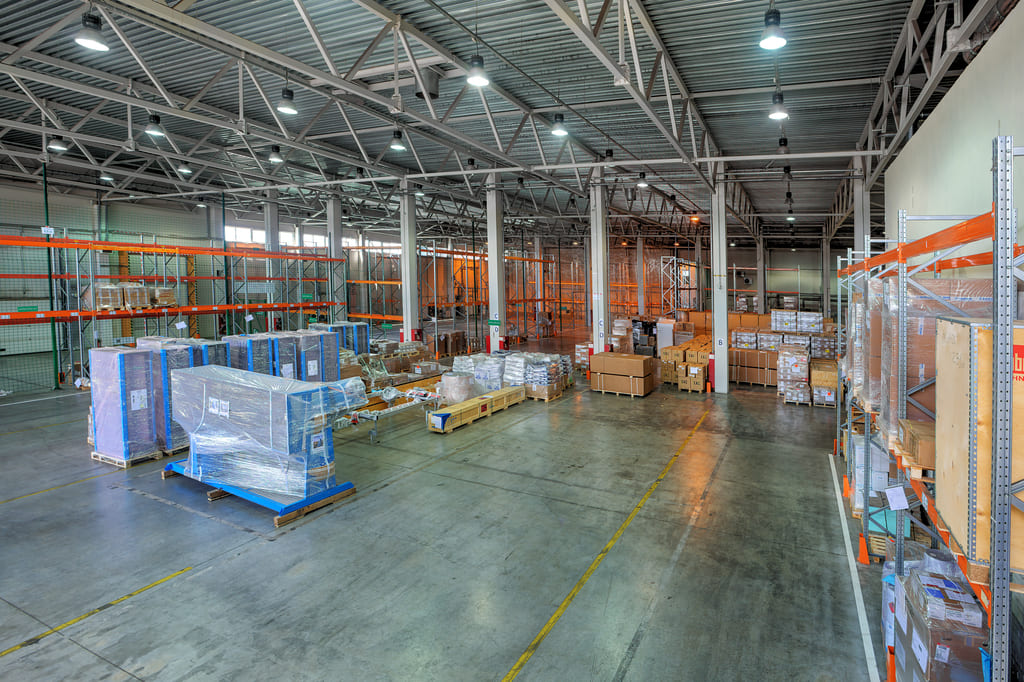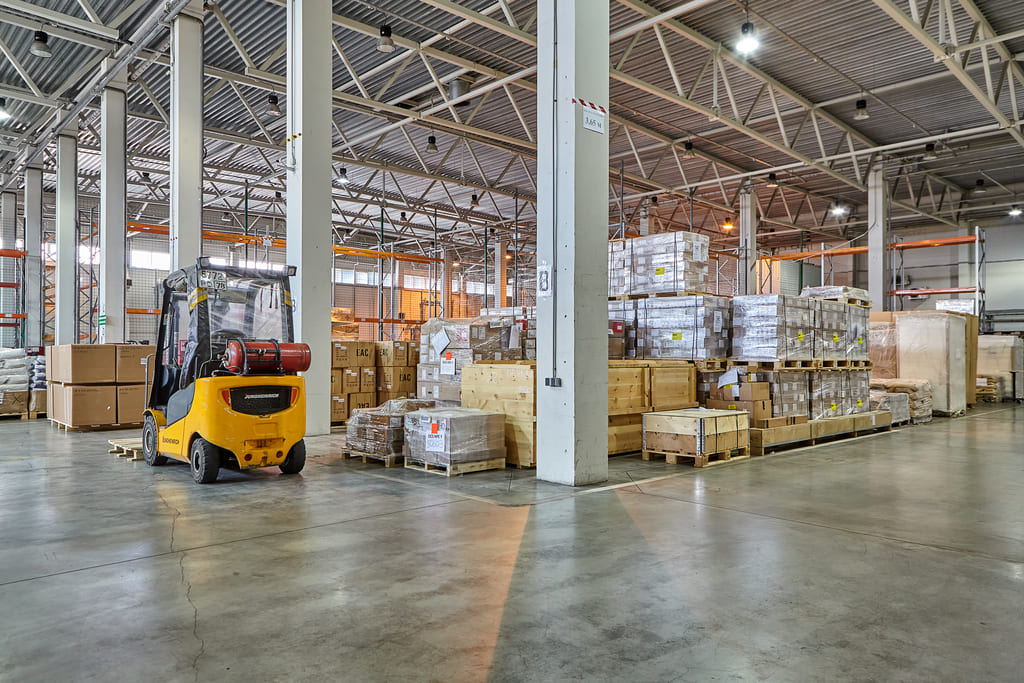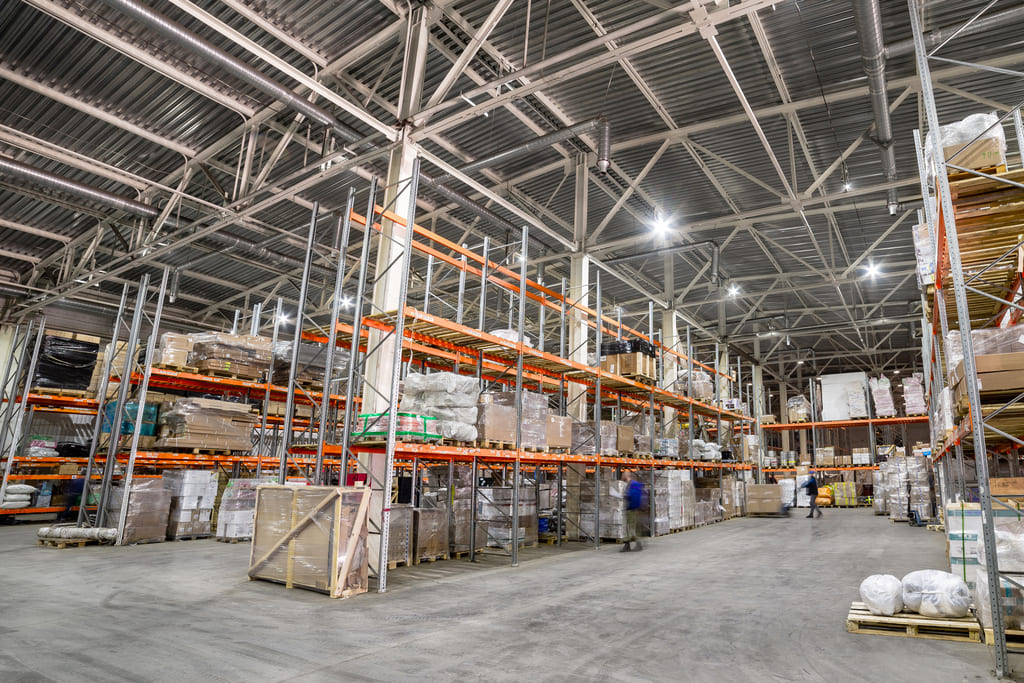Bonded Warehousing Services Across North America
Premium Bonded Warehouse Services for Your Business
A bonded warehouse, also known as a customs bonded facility, offers a secure storage environment for imported goods without the need to immediately pay duties or taxes. These bonded storage warehouses are ideal for businesses seeking to defer fees while maintaining compliance with customs regulations. Goods can remain in a bonded facility until they are sold, re-exported, or formally released into the domestic market.
At OLIMP, we connect you to a network of advanced bonded warehouses across North America. Whether you need bonded cold storage, specialized handling for restricted items, or seamless integration with customs authorities, our partners offer secure, fully compliant solutions tailored to your logistics needs.
Elevate your supply chain with OLIMP’s bonded warehousing
Reduce cash flow issues and stay compliant with customs using our bonded storage.
Ensure All Goods Stored are Compliant with Customs Regulations
Why Choose a Bonded Storage Warehouse?
1. Cost Efficiency: Delay duties and taxes until goods are sold or exported.
2. Secure Bonded Warehouse Access: 24/7 availability with advanced monitoring systems.
3. Compliance Assurance: Meet all customs guidelines and avoid costly penalties.
4. Flexibility for Restricted Goods: Store regulated products like alcohol, pharmaceuticals, or perishables with ease.
5. Integrated Fulfillment Services: Importing, storing, picking, packing, and shipping—all under one roof.
6. Tax Incentives: In select regions, enjoy rebates or exemptions when using bonded warehouse services.

Bonded vs. Non-Bonded Warehousing: What’s the Difference?
Non-bonded warehouses, such as private warehouses and distribution centers, are not supervised by customs, allowing goods to be freely traded within the country. Unlike bonded warehouses, where duties and taxes are deferred, goods in non-bonded warehouses require immediate payment of these fees. Non-bonded warehouses are ideal for retail and local distribution, offering flexibility and quicker access to goods.
Choosing between bonded and non-bonded warehousing depends on factors like product type, import/export frequency, and customs regulations, helping businesses optimize their supply chains and inventory management.

Find Bonded Warehouses Near You with OLIMP
Searching for “bonded warehouses near me” or “bonded warehouse services” in North America? OLIMP operates a network of secure bonded warehouses strategically located near major ports, airports, and logistics hubs to ensure fast, compliant, and cost-effective storage solutions.
Why Choose OLIMP’s Bonded Facilities?
✔ Nationwide Accessibility: Easily find a bonded warehouse near you in key cities like Los Angeles, Miami, Chicago, and Toronto.
✔ Fast Customs Clearance: Our facilities are fully integrated with customs authorities for smooth, delay-free processing.
✔ Flexible Storage Options: From short-term bonded storage to long-term inventory management, we tailor solutions to your needs.
✔ Specialized Handling: Need bonded cold storage for perishables or secure space for high-value goods? We’ve got you covered.
Industries We Serve:
- Importers & Exporters: Defer duties and streamline cross-border trade.
- E-Commerce & Retail: Optimize inventory with bonded fulfillment services.
- Food & Beverage: Compliant customs bonded facilities for food processing.
- Manufacturing: Store raw materials and finished goods tax-free until distribution.
Locate a Facility Near You:
Use our location page or contact our team to find the best bonded storage warehouse for your logistics needs.

Frequently Asked Questions (FAQ) – OLIMP Warehousing
Q: What is a bonded warehouse?
A bonded warehouse is a customs-authorized storage facility where imported goods can be stored without paying duties or taxes until they are released into the domestic market. If the goods are re-exported, duties may never be paid.
Q: How does bonded warehousing work?
Goods arrive from international shipment and are placed under customs control inside the facility.
The importer can then:
- Store inventory
- Re-export goods
- Distribute partially
- Pay duties only when selling domestically
Taxes are charged only on the quantity removed from the warehouse.
Q: What is the main benefit of a bonded warehouse?
The biggest advantage is duty deferral – importers don’t pay taxes upfront and improve cash flow by paying gradually when inventory sells.
Q: How long can goods stay in a bonded warehouse?
In many countries (including the U.S.), goods can be stored for up to 5 years under bond, and sometimes longer depending on regulations.
Q: Do you pay customs duty in a bonded warehouse?
No duties are postponed while goods remain in storage.
You only pay duty when:
- Goods enter the local market
- They are withdrawn for consumption
If re-exported, duties are usually not paid.
Q: What types of products can be stored in a bonded warehouse?
Common items include:
- Electronics
- Alcohol & tobacco
- Apparel & retail goods
- Automotive parts
- Pharmaceuticals
- High-value imports
They are especially useful for goods with high tariffs.
Q: Can goods be processed in a bonded warehouse?
Yes – limited operations are allowed, such as:
- Labeling
- Sorting
- Repacking
- Quality inspection
But manufacturing or major transformation is restricted unless specially licensed.
Q: Who should use bonded warehousing?
Best for businesses that:
- Import large volumes
- Sell inventory gradually
- Re-export goods
- Manage seasonal demand
- Need tariff flexibility
It helps companies delay tax payments and manage inventory risk.
Q: Can I release part of my inventory from a bonded warehouse?
Yes. Importers can withdraw inventory in smaller quantities and pay duties only on the portion released – not the entire shipment.
Q: Is bonded warehousing good for e-commerce?
Yes, especially for international sellers shipping inventory in bulk and fulfilling orders over time.
It allows staged duty payments aligned with real sales.
Ready to streamline your warehousing needs?
Request a quote today and discover how OLIMP's tailored solutions can optimize your operations